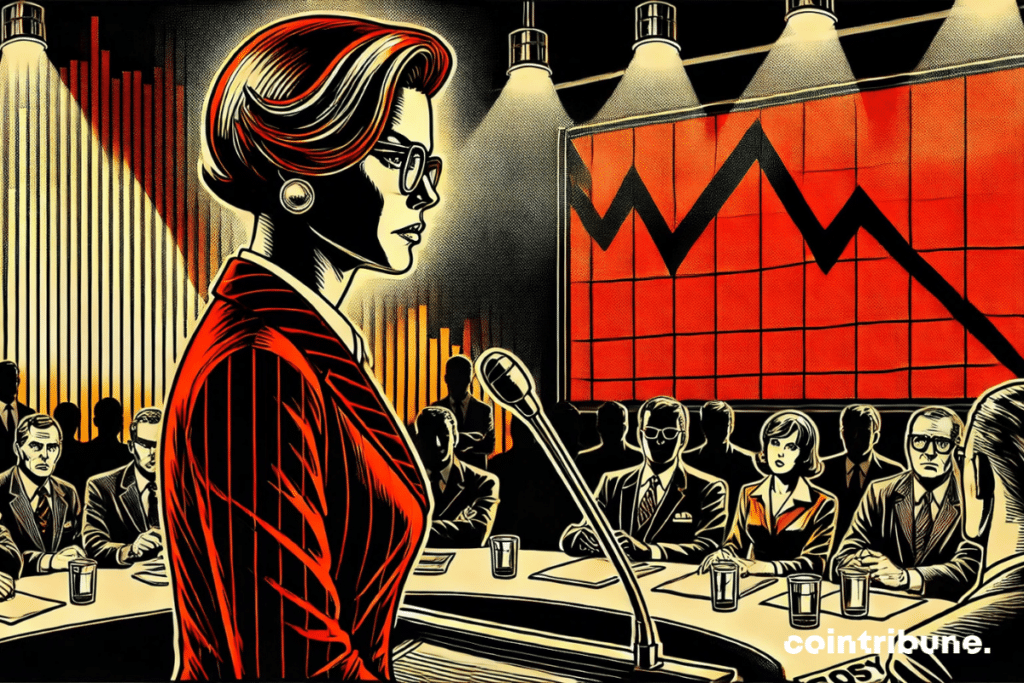US, Europe, China : Diverging Economic Trajectories
The financial markets hate uncertainty, yet the global economy is entering a period of instability. At the dawn of 2025, fears of economic slowdown, inflationary pressures, and political uncertainties are multiplying. Kristalina Georgieva, Managing Director of the International Monetary Fund (IMF), warns of “headwinds” and “divergences” threatening global economic balance. Europe is faltering, the United States surprises with its resilience, China faces deflationary pressure, and Brazil struggles with inflation. Behind these disparities, another factor is concerning : the erosion of investments in education is stifling innovation and long-term growth. As the IMF prepares to release its updated report, one question remains: do these economic fractures create an irreversible divide or do they foreshadow a new world order?

Global Economic Fractures : Divergent Trajectories
Kristalina Georgieva, director of the International Monetary Fund (IMF), sounds the alarm on the state of the global economy. If inflation seems under control in advanced economies, it remains unpredictable in several emerging countries. “The United States is likely to do even better than we anticipated, unlike the European Union which is lagging a bit more,” she observed on January 10, 2025, during a round table with the media at the IMF headquarters in Washington. This divergence indicates an economic dynamic with multiple speeds.
India, often considered a growth engine, is beginning to slow down. Meanwhile, Brazil struggles with persistent inflation, while China faces a risk of deflation. These developments accentuate imbalances between regions and complicate the tasks of economic decision-makers. “It is important for states to understand the need to implement necessary reforms to revitalize their growth,” Georgieva insists, as she highlights the necessity of concerted actions to avoid even more pronounced fragmentation.
In this fragile context, the economic policy of the United States emerges as a key element for the global economy. The inauguration of Donald Trump raises questions, particularly regarding the direction of future trade and fiscal policies. “There is a global interest in the political decisions of the future government, concerning tariffs, tax cuts, and deregulation,” Georgieva reminds. A shift in the rules of the game by Washington could provoke tensions in the financial markets and amplify currency volatility. This instability could also affect alternative assets, especially cryptos, often seen as safe havens in times of uncertainty.
The Impact of Economic Policies on Financial Markets and Crypto
The IMF report goes beyond an analysis of economic divergences. It highlights a deeper issue: the lack of investment in education and human development, which are essential pillars for long-term growth. According to an expert from the Fund, this gap is particularly evident in China, where the training of engineers is no longer sufficient to stimulate the economy. “They produce all these engineers, but if they want to improve their economy, internal demand needs to be strengthened,” he emphasizes. This issue extends beyond China. In many countries, insufficient educational investments hinder the rise of future sectors, particularly new technologies and blockchain.
In this context of economic uncertainty, cryptos and decentralized finance (DeFi) emerge as alternatives in the face of monetary fluctuations and trade tensions. Bitcoin, often described as “digital gold,” could benefit from renewed interest in the event of fiat currency devaluation or tightening monetary policies. If access to credit and liquidity tightens, investors may be tempted to turn to assets independent of central banks. Moreover, fiscal developments in the United States and Europe could play a decisive role in the adoption of stablecoins and cryptos, depending on the regulations that will be implemented.
However, beyond financial markets, these transformations could redefine economic models and promote greater adoption of cryptos. As economic fractures deepen, these assets could gain legitimacy as tools of resilience against monetary imbalances and macroeconomic uncertainties.
The global economy stands at a crossroads. If economic divergences intensify, central banks will have to choose between supporting growth and containing inflation, a balance that is becoming increasingly difficult to maintain. The rise of geopolitical tensions and uncertainties surrounding U.S. economic policies could reshape financial flows and intensify market volatility. In this unstable climate, cryptos, particularly bitcoin, emerge as an alternative explored by investors seeking protection against monetary fluctuations. This economic transition tests traditional models, forced to adapt to ongoing changes. The outcome will depend as much on the monetary choices of major powers as on the ability of economic actors to innovate in response to new market dynamics.
Maximize your Cointribune experience with our "Read to Earn" program! For every article you read, earn points and access exclusive rewards. Sign up now and start earning benefits.
Diplômé de Sciences Po Toulouse et titulaire d'une certification consultant blockchain délivrée par Alyra, j'ai rejoint l'aventure Cointribune en 2019. Convaincu du potentiel de la blockchain pour transformer de nombreux secteurs de l'économie, j'ai pris l'engagement de sensibiliser et d'informer le grand public sur cet écosystème en constante évolution. Mon objectif est de permettre à chacun de mieux comprendre la blockchain et de saisir les opportunités qu'elle offre. Je m'efforce chaque jour de fournir une analyse objective de l'actualité, de décrypter les tendances du marché, de relayer les dernières innovations technologiques et de mettre en perspective les enjeux économiques et sociétaux de cette révolution en marche.
The views, thoughts, and opinions expressed in this article belong solely to the author, and should not be taken as investment advice. Do your own research before taking any investment decisions.